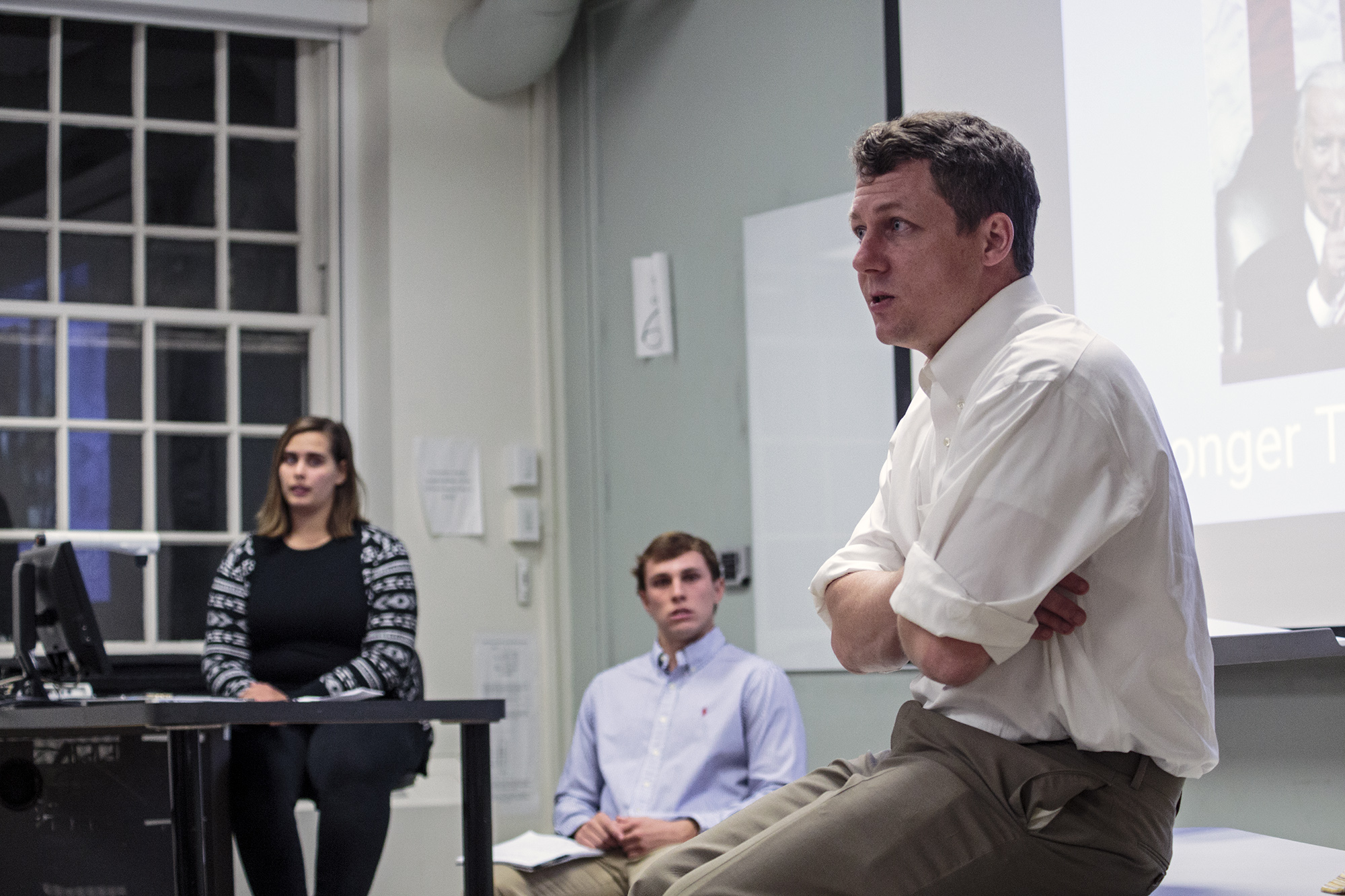By Carrie Snurr
For The Diamondback
Maryland State Delegate Eric Luedtke was blunt Tuesday night when he met with the UMD College Democrats.
“So, yeah, last Tuesday kind of sucked, right?” the Montgomery County Democrat told the group.
On Nov. 8, the Republican party took control of Congress and the presidency in an upset that shocked Democratic leadership. At Tuesday’s event, titled Stronger Together, Luedtke talked with about 50 students about how the party should move forward.
“We weren’t really planning on having [this meeting], we thought we had the White House in the bag,” said Cayli Baker, the group’s vice president. “I’m sorry, I’m sorry I didn’t do more, we all should have done a little more. We have to continue to stay strong.”
The morning after the election, Luedtke said he received a call from one of his constituents — a naturalized citizen who immigrated from Myanmar about 50 years ago. The man woke up Wednesday morning to his granddaughter in tears because she was scared he would be deported.
President-elect Donald Trump promised massive deportations throughout his campaign.
“It would be remissive to say it’s not going to be a tough four years,” Luedtke said. “People are emboldened by a Trump presidency to express racism at a level I’ve never seen in my lifetime.”
Since Trump’s election, there have been reports of racist incidents across the country, including in Maryland. A Silver Spring church was recently vandalized with the words, “Trump Nation. Whites Only.”
Luedtke said Democrats needed to fight against the misogyny and racism that has been brought forth by the Trump campaign.
Despite Trump’s election, Luedtke said the Democratic Party saw some good outcomes in the election. California Democrat Kamala Harris is now the first ever Indian-American to be elected to the Senate, and Ilhan Omar, a Somali-American, won a seat in the Minnesota State Legislature.
Students asked Luedtke questions about how Democrats should act in a Republican-controlled congress, how to combat low voter-turnout during midterm elections and what kind of strategies the Democratic Party should have going forward.
Luedtke said Democrats should not participate in the obstructionist politics that Republicans engaged in during the Obama administration. The GOP, for example, has blocked the nomination of Judge Merrick Garland to the Supreme Court, leaving a vacant spot since the death of Antonin Scalia in February.
“I don’t believe in burning the place down just to fight Donald Trump,” Luedtke said.
Instead, he said suggested using filibusters to fight back when Trump nominates “ridiculous people,” and try to rally the support of some Republicans to vote down Trump’s bills.
Baker also gave the audience several suggestions for organizations they can donate to and volunteer for, such as Planned Parenthood and CARE to Stop Violence.
Will O’Malley, spokesman for the UMD Democrats, said that one of the biggest issues would be pressuring Maryland’s Republican governor, Larry Hogan, to stand up against Trump should the president-elect attempt to carry out mass deportations.
The group pointed to recent walkout protests at Towson University and Washington-area public schools as examples of how to protest against Trump and his proposed policies.
The discussion ended with a clip of First Lady Michelle Obama’s speech at the Democratic National Convention, where she first shared the motto: “When they go low, we go high.”



